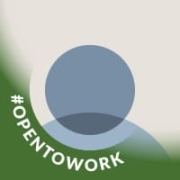

Jira and Rally Software both compete in the Agile project management category. Jira appears to have the upper hand due to its flexibility afforded by a robust plugin ecosystem.
Features: Jira is known for its comprehensive API integration, extensive customization options, and support for a wide range of plugins. Its versatility allows it to handle various technical needs effectively. Rally Software, on the other hand, is proficient in progress tracking and integrates well with other project management aspects. Both support Agile methodologies, but Jira offers broader flexibility through its plugins. Rally's strong reporting capabilities provide detailed and clear insights valued by project managers.
Room for Improvement: Jira's complexity can be challenging, particularly for new users, and its reliance on plugins can increase complexity and cost. Users also report issues with search functionality and scalability for larger enterprises. Rally Software could benefit from improving its integration with other tools and expanding its customization options. Enhancements in user interface and portfolio management would also be beneficial.
Ease of Deployment and Customer Service: Jira offers deployment flexibility with cloud, hybrid, and on-premises options, meeting various business needs. While its documentation supports self-service, direct technical support can sometimes lack responsiveness. Rally Software is primarily cloud-based, offering hybrid options and robust support, though improvements in technical responsiveness are desired by users.
Pricing and ROI: Jira is generally seen as cost-effective, especially its cloud offering. However, additional plugin costs can add up. Its licensing is considered affordable, providing good ROI for Agile and technical teams. Rally Software is often more expensive, impacting its cost-effectiveness compared to Jira. Nevertheless, the comprehensive integration and reporting tools can justify the cost for certain organizations, adding value for specific needs.


Jira is a powerful cloud- and subscription-based application lifecycle and issue management solution. It is designed to aid users both in project management and in resolving any issues that arise at any point in the software development process. It is especially concerned with easing the ability of developers to collaborate.
Jira Benefits
Some of the ways that organizations can benefit by choosing to deploy Jira include:
Jira Features
Real-time notification feature. Users can set Jira so that it offers them notifications that contain critical information in real time. It can send users email notifications when pressing issues have been updated. They can also set it to notify them about tasks that may be due, or other similar events.
Reviews from Real Users
Jira is a powerful solution that stands out when compared to many of its competitors. Two major advantages it offers are its workflow engine and its highly customizable dashboard.
Bharath R., the tool implementation and project management lead at a financial services firm, writes, “I feel the strongest feature of Jira is its workflow engine. It empowers us to automate our workflows within our organization. It's the one characteristic of Jira which I think can help any organization, be it in any domain.”
Uday J., a staff engineer at a computer company, says, “Another thing that I like a lot about Jira is that in the dashboard, you can plug the modules that you want. You can enable certain sections. For example, you can show trend history, open Jira tickets, etc. Some of the managers have created a dashboard for each engineer.”
With Rally Software, you can plan, prioritize, manage, track, and continuously improve your work so that you can deliver the value that your customers need with speed, quality, and efficiency. Our enterprise-class Application Lifecycle Management (ALM) SaaS platform provides visibility into progress, roadblocks, and dependencies across multiple teams, projects, and programs. This allows you to align to your strategic goals and create better business results, and to do it all in a single system of record.
We monitor all Application Lifecycle Management (ALM) Suites reviews to prevent fraudulent reviews and keep review quality high. We do not post reviews by company employees or direct competitors. We validate each review for authenticity via cross-reference with LinkedIn, and personal follow-up with the reviewer when necessary.